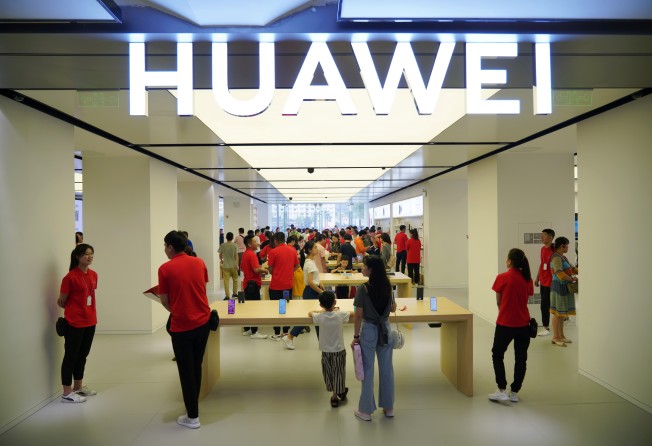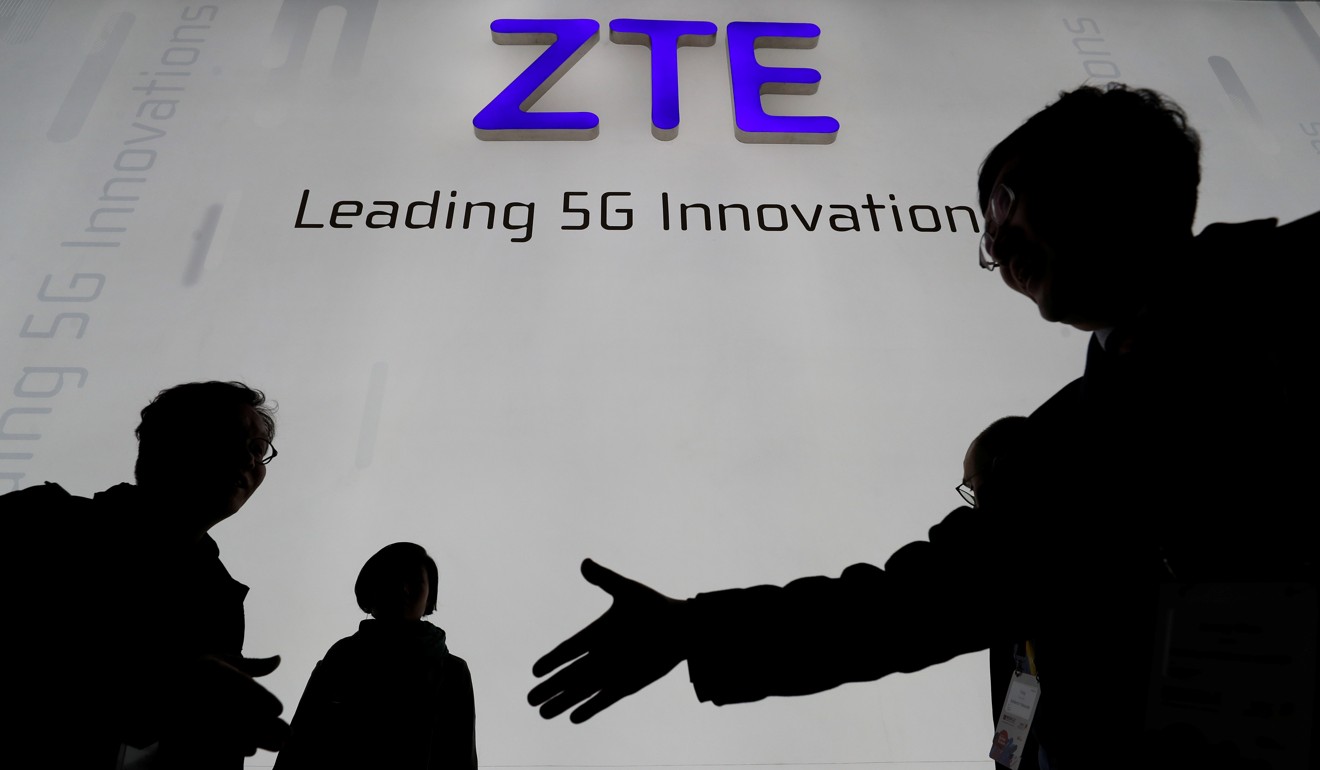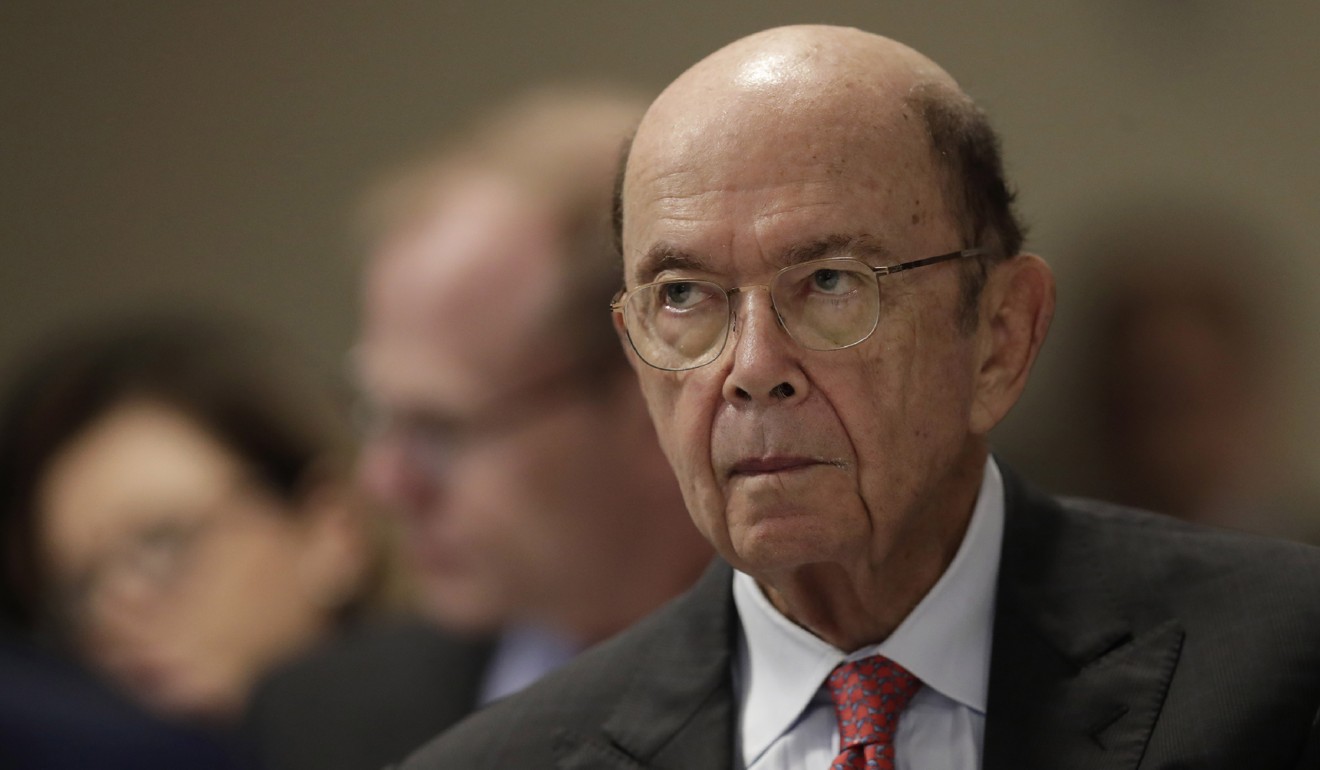A reprieve in name only: Trump’s Huawei moves leave US tech companies confused
- Delaying a ban while adding more Huawei entities to the blacklist ‘reflects a schizophrenic approach to China trade relations’
- The episode reminds US tech companies of a much broader problem: in this environment, how to do business with China

On August 19, the US extended a deadline allowing American tech suppliers to sell components to Chinese telecommunications giant Huawei for another 90 days. Since then, though, the much-anticipated reprieve has provided more confusion than clarity.
As part of the extension, the Commerce Department added 46 more Huawei subsidiaries to its blacklist, affecting more US businesses once the new deadline arrives in November.
“The decision to extend the time period, while at the same time adding a large number of new Huawei entities to the export ban, reflects a schizophrenic approach to China trade relations,” said Judith Lee, co-chair of the law firm Gibson Dunn’s international trade practice.
“This brings more uncertainty and is very bad for US companies,” added Lee.
The announcement was only the latest example of the Trump administration’s unpredictable approach in its policymaking towards China. In the days that have followed, the policy served as a reminder of a much broader problem facing US tech companies: how to do business with Chinese tech companies overall.
The administration’s inconsistencies have prohibited businesses from making crucial decisions and, to some, could threaten their very existence. And contrary to a traditionally open communication between the business community and Washington, US companies are finding their voices falling on deaf ears.
Huawei has been in the crosshairs of the escalating US-China trade war for months. The US blacklisted the world’s largest telecoms equipment maker in May, putting it on a so-called Entity List. In making the ban, US officials said they feared that Huawei devices might give “back door” monitoring access to Beijing or that the company could otherwise be compelled to share critical American information that would threaten national security.
The blacklist barred Huawei from doing business in the US market, even though the company reportedly spent US$11 billion last year buying US components from Qualcomm and Intel. The reprieve by the US Commerce Department permitted Huawei to do business in areas deemed not critical for three months – to minimise disruption of network operators in rural America that rely on Huawei equipment, the department said.
Earlier this month, the US followed through on legislation approved by Congress last year to prohibit government agencies from purchasing equipment from five Chinese companies including Huawei; its rival ZTE; radio systems provider Hytera; camera maker Hangzhou Hikvision Digital Technology; and video surveillance products maker Dahua Technology.
The legislation was approved last summer as part of a defence spending bill. Coincidentally, the rule went into effect on August 19.
Many US firms have found “phase two” of the defence bill’s provisions even more troublesome. By August 2020, much broader restrictions will keep government agencies from procuring services and products from any company that uses equipment from Huawei.
For months, numerous US firms have sought to work with the government, seeking more clarity and to narrow the restrictions. But a concerted effort is unlikely, people at various companies and advisory firms said.

“There is some sensitivity in doing that. You don’t want to be outright supporting companies like Huawei because there are justifiable concerns,” said Lee.
Talks between US companies and government officials were going on earlier this year, according to a person involved in the process. Government officials at the working level admitted that the ban was far broader than initially intended, the person said, who asked not to be named because the conversations were private.
But since the end of May, such discussions have stopped, this person said. And the agencies have since not responded as the trade war intensified after China established its own list of “unreliable entities”.
Additionally, many businesses and advisers have found the language in the defence bill’s broader restrictions opaque.
“There is some ambiguity that looks like it only applies to critical infrastructure, which will exclude my business. But it’s unclear. So the question is ‘do I take a risk putting something in and then find out my clients cannot get funding?’” said Mark Zuckerman, chief executive officer of Clear Connection.
The company, a video surveillance system provider based in Beltsville, Maryland, services Baltimore and Washington. The company does little federal government work, but several of Zuckerman’s non-profit clients receive grants from the US Department of Homeland Security.
Of those non-profit clients, 25 per cent to 30 per cent use Hikvision products, Zuckerman said.
A spokesman for Hikvision, which is based in Hangzhou, said in a statement that the company “is gravely disappointed that the provision will take effect without a review or investigation to warrant the video surveillance technology restrictions.”
Zuckerman said that he “can understand why the government wants to do this to the products that are open to the critical infrastructure. 5G is complicated.
“But if the system runs on a private network, and you don’t propagate the routing to outside, there is no reason to make that ban,” Zuckerman said.
Instead of blacklisting the company outright, he said the government could require it and the other blacklisted firms to go through tests to ensure that their networks were not vulnerable.
Regarding national security concerns, Zuckerman said, “I do support the president on the issue. But in my opinion, the US is trying to tighten the screw on China.
“This is more about the trade war than anything else.” he said.
David Adelman, a former US ambassador to Singapore and now a partner at the Reed Smith law firm, noted that “the US export-control regime gives great deference to the Pentagon. For American decision-makers, Huawei presents slightly different issues from the typical dual-use analysis because of the complexity of software within the telecommunications infrastructure.
“The views of the intelligence agencies are highly classified, which makes it very challenging for American officials to speak about their concerns with Huawei.”
In a statement following the announced reprieve, a Huawei spokesman said that “it's clear that this decision, made at this particular time, is politically motivated and has nothing to do with national security.
“The extension of the Temporary General Licence does not change the fact that Huawei has been treated unjustly.”

Many Huawei suppliers have requested the special licences to continue to sell to the telecoms giant. The US has received more than 130 applications, Reuters reported on Wednesday, more than doubling the number Commerce Secretary Wilbur Ross cited in discussing such applications in late July.
And what companies have had to do to continue business with Huawei so far is just the tip of an uncertain iceberg. With US President Donald Trump’s executive order signed in May that created the blacklist, “there will be more targeted designations against Chinese companies,” said Lee of Gibson Dunn.
The scary part, she added, is that “nobody knows whether this administration is doing this to protect against the threats or to gain leverage against China on trade negotiations”.
Additional reporting by Robert Delaney